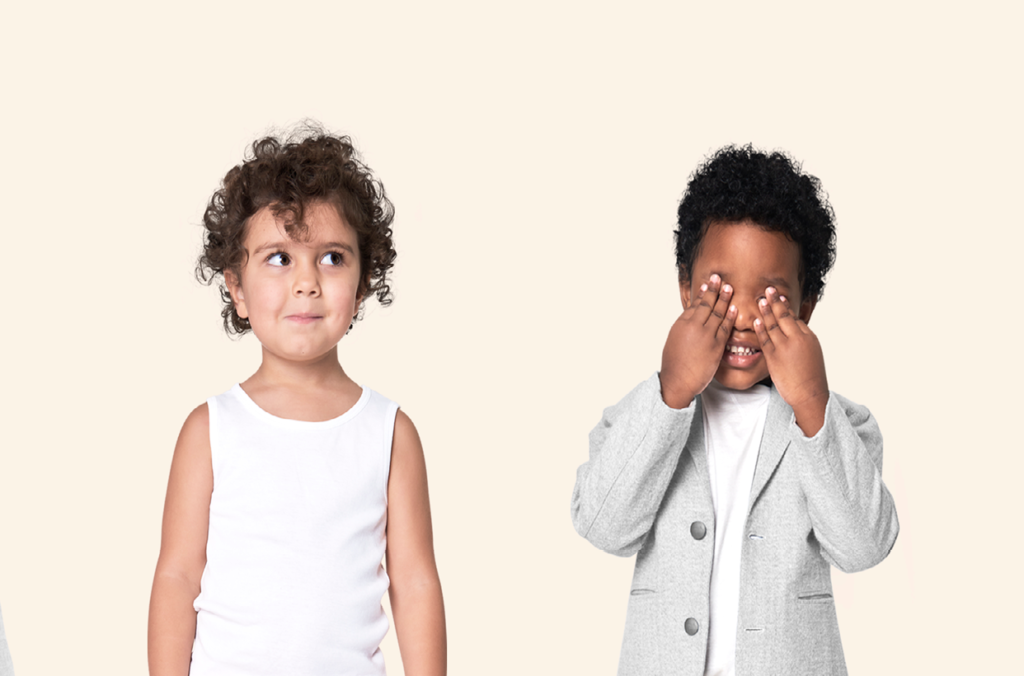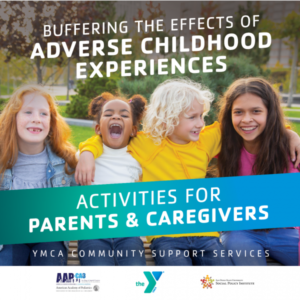The ability to express emotions, manage behavior, and interact positively with others are critical life skills for both children and adults. Healthy child development happens in the context of caring, supportive, nurturing, and attached relationships with caregivers.
Caregivers play an especially important role in showing children how to handle emotions, behave in different environments, and engage in relationships and community.
CAAVE
CAAVE was created by the YMCA Youth and Family Services to build strong connections and relationships.
The elements of CAAVE C = compassion, A = awareness, A= acceptance, V = validation, E = empowerment – bring about warm and responsive parent/caregiver relationships with children and promote their growth and development.
C – Compassion is empathy, plus the desire to help. It is an action to relieve distress. Parents/caregivers can slow down and communicate compassion both verbally and non-verbally when responding to the needs of children.
A – Awareness of our internal and external experiences without judgement of those sensations helps to accurately identify our thoughts, feelings and motivations. Judgements are often based on personal values and can get in the way of our interactions with others. For parents and caregivers, awareness is an important part of caring for children. Self-awareness can improve interactions with children, especially when setting limits for their health and safety.
A – Acceptance is complete and total acceptance of a given situation. Family situations can be complex and sometimes difficult. Acceptance of those circumstances does not mean parents/ caregivers have to like a situation, or agree with it, simply accept it as reality at that moment. Acceptance of the child, their age and development, strengths and weaknesses promotes emotional closeness and understanding of a child.
V – Validation is recognizing a child’s internal experience and communicating that understanding. It is not fixing or avoiding a child’s experience, response or behavior. It is communicating understanding, which can soothe an upset or scared child. It tells a child that what they see and feel is valid and ok. By doing this, children will learn to identify their own emotions and other people’s emotions.
E – Empowerment is access to a wide range of age-appropriate choices. Identifying options with children, like which pajamas they want to wear or which pizza toppings they want, develops decisionmaking and problem-solving skills. Children will learn to look for options and solutions as they grow and learn.
4 OTHER ACTIVITIES TO TRY
- Use times that you are already connecting with your child to teach about emotions. While playing together or reading stories, wonder with your child about what the characters are feeling. Ask how they know. These moments are helping your child learn about their emotions as well as others.
- Playing games can teach about social interactions and negotiating rules. Engaging in age-appropriate games creates fun opportunities to develop these skills and practice them with people your child trusts.
- Enjoy quality playtime together and let your child take the lead on creative and imaginative play. It is a great way for them to explore and express emotions and build social skills. As a parent or caregiver, consider reflecting on:
- What are my strengths and areas of growth in managing my own emotions?
- What emotions are easiest and hardest for me to identify and express?
- How might these strengths and areas of growth impact my parenting and relationship with my child(ren)?
- The Y currently offers a behavior consultation warm-line to families and child care providers. Through these free and confidential phone-based consultations, we offer a listening and empathetic ear to problem-solve challenges with parenting, provide support in coping with the current stressors, and provide guidance in helping children understand their emotions. To connect with one of our behavior support specialists, email [email protected] or call 1-800-481-2151.
DOWNLOAD FULL E-BOOK
LEARN MORE ABOUT ADVERSE CHILDHOOD EXPERIENCES








